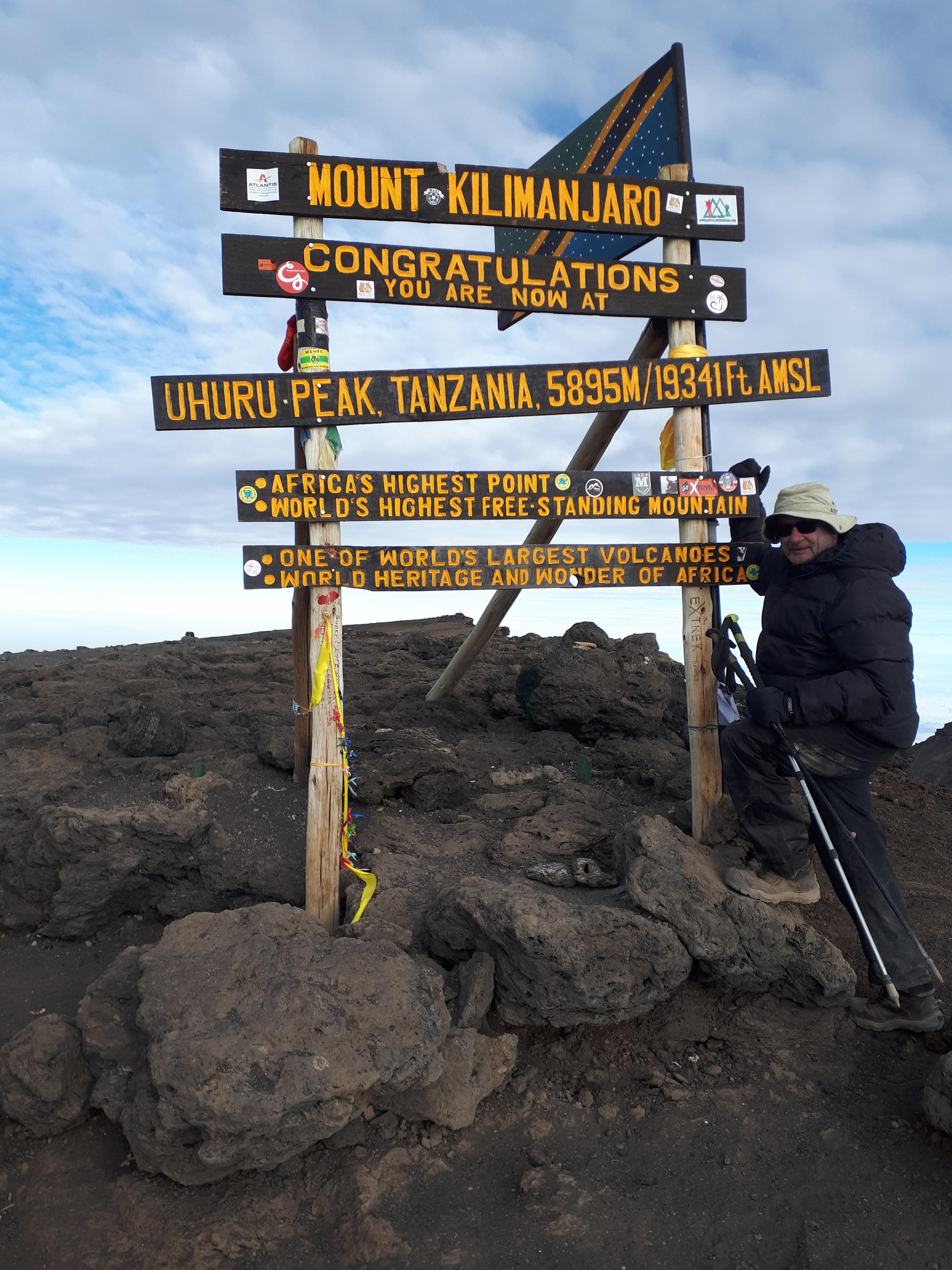Barry Cudmore reached Uhuru peak after seven days of climbing
By Diego Flammini
Staff Writer
Farms.com
A 72-year-old potato farmer from Brackley Beach, P.E.I. is back from Tanzania after climbing one of the tallest mountains in the world.
Barry Cudmore left Canada for Africa on Sept. 29 to climb Mount Kilimanjaro and raise money for Farmers Helping Farmers, a charity he and his wife, Ellen, founded in 1981 after visiting Tanzania.
The charity helps dairies, women’s groups and schools build sustainable ag communities in developing countries.
His goal is to raise $19,341 – one dollar for each step it took to reach Uhuru peak, the summit of Africa’s highest mountain and highest point on the continent.
So far, people have donated more than $7,.500 to the cause.
“We’re working our way towards our goal,” he told Farms.com. “I’m comfortable with where we’re at and confident we can reach it.”
Cudmore started his trek on Oct. 3.
He won’t forget some of the images from his experience.

Barry Cudmore at Uhuru Peak.
“One night we started our trek around 11:00 pm,” he said. “Here I am, a potato farmer from P.E.I., walking up Mount Kilimanjaro with a torch and a giant full moon in the distance. And 70km west of Kilimanjaro is Mount Meru, which you could see in the light of the moon. I’ll never see anything like that again.”
His group included six other climbers.
All seven of them shared a common bond.
“For each of us it was a personal best for our highest climbs and treks,” he said. “There was some camaraderie there and they were great people to climb with.”
It took about seven days and nights of trekking and camping to reach the summit on Oct. 10.
Cudmore experienced multiple feelings upon reaching the mountain’s peak.
“I was elated, satisfied and relieved that I achieved that I set out to do,” he said.
The climb also took a physical toll on Cudmore.
Shortly after reaching Uhuru peak, he came down with altitude sickness.
This occurs when a person cannot get enough oxygen to his or her brain from the high altitudes. Symptoms can include headache, fatigue and nausea.
A team of 40 local cooks, guides and porters accompanied the climbers on their journey.
They were instrumental in helping everyone get up and down Kilimanjaro safely.
“Two guides recognized the symptoms immediately and put me on oxygen,” Cudmore said. “With one of them on each side, they ushered me down the peak to a lower altitude. Within four or five hours I was fine, but without their help and the help of all of our guides, we don’t succeed in our climb.”
Cudmore arrived back in Canada last week and already received an invite to go back to Africa.
A friend invited him to climb Mount Kenya, the highest mountain in that country and second highest in Africa after Kilimanjaro.
But before that happens, Cudmore is planning to travel with his wife.
“I think I owe her some time,” he said. “Maybe we’ll go on a vacation around Christmas.”
Anyone interested in donating to Farmers Helping Farmers can visit the organization’s website.